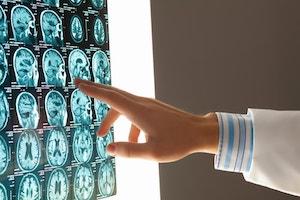Handled Personally
Traumatic Brain Injuries (TBI)

Miami Traumatic Brain Injury Lawyer – Fighting for TBI Victims
Our law firm has over 40 years of experience representing victims of serious accidents resulting in traumatic brain injuries (TBI). We have successfully represented clients in State and Federal courts in cases involving slip and falls, automobile and trucking accidents, cruise and boating incidents, and medical malpractice—all of which have led to life-altering brain injuries that are often overlooked or misdiagnosed.
At Holzberg Legal, we understand the hidden consequences of TBIs, including memory loss, concentration issues, cognitive impairments, and emotional changes. Our unique intake process ensures that we identify brain injuries early, even when they may not be immediately obvious. Many lawyers and even some doctors fail to recognize these symptoms, but we have developed our own evaluation methods to screen for potential mild traumatic brain injuries (MTBI) from the very beginning of your case.
Recognizing and Diagnosing Traumatic Brain Injuries
Many personal injury lawyers and medical providers overlook the signs of traumatic brain injuries, leaving victims undiagnosed and untreated. At Holzberg Legal, we take a different approach, ensuring that head injuries are thoroughly investigated from day one.
Common TBI symptoms include:
✔ Memory loss and difficulty concentrating
✔ Headaches, nausea, or vomiting
✔ Dizziness or loss of balance
✔ Blurry or double vision, white spots, or floaters
✔ Confusion, disorientation, or brain fog
✔ Sensitivity to light and sound
✔ Mood changes, depression, or anxiety
If you experienced any of these symptoms after striking your head, you may be suffering from a TBI. Even if there is no visible skull fracture, scalp bleeding, or abnormal MRI/CT scan results, a brain injury may still exist. Our specialized intake process helps detect these injuries early, ensuring that you receive proper medical evaluation and legal representation.
Diagnostic Criteria for Traumatic Brain Injury
The Diagnostic and Statistical Manual of Mental Disorders, 5th Edition (DSM-5) provides specific criteria for diagnosing traumatic brain injuries (TBI). The diagnostic criteria are as follows:
Criterion A
The criteria for major or mild neurocognitive disorder must be met.
Criterion B
There must be evidence of a traumatic brain injury, defined as an impact to the head or other mechanisms of rapid movement or displacement of the brain within the skull, with one or more of the following:
- Loss of consciousness
- Posttraumatic amnesia
- Disorientation and confusion
- Neurological signs, such as:
- Neuroimaging demonstrating injury
- New onset of seizures
- Marked worsening of a preexisting seizure disorder
- Visual field cuts
- Anosmia (loss of smell)
- Hemiparesis (partial paralysis of one side of the body)
Criterion C
The neurocognitive disorder must present immediately after the traumatic brain injury or after recovery of consciousness and persist beyond the acute post-injury period.
Additional Considerations
- The DSM-5 includes a TBI severity rating (mild, moderate, or severe) but notes that the initial severity is not always predictive of long-term effects.
- Factors that may impede recovery include age, prior brain damage, and history of substance abuse.
- Common associated symptoms include emotional disturbances, personality changes, physical symptoms, and neurological deficits.
Proper diagnosis of TBI-related neurocognitive disorders requires both cognitive decline and a history of TBI that meets these criteria.
Expanded Symptoms of Traumatic Brain Injury (TBI)
Physical Symptoms
✔ Headaches, often resembling migraines or tension-type headaches
✔ Dizziness and vertigo
✔ Fatigue or drowsiness
✔ Nausea and vomiting
✔ Balance problems and coordination issues
✔ Vision changes, including blurred or double vision
✔ Sensitivity to light and noise
✔ Tinnitus (ringing in the ears)
✔ Clear fluids draining from the nose or ears
✔ Convulsions or seizures
✔ Unequal pupil size or dilation
✔ Neck pain
✔ Changes in sense of taste or smell
Cognitive Symptoms
✔ Memory problems, especially short-term memory issues
✔ Difficulty concentrating or paying attention
✔ Confusion or disorientation
✔ Slowed processing speed
✔ Problems with executive functioning (planning, organizing, problem-solving)
✔ Difficulty making decisions
Emotional and Behavioral Symptoms
✔ Irritability and mood swings
✔ Anxiety and depression
✔ Personality changes
✔ Aggression or combativeness
✔ Apathy or lack of motivation
✔ Emotional lability (rapid changes in emotions)
✔ Restlessness
Sleep-Related Symptoms
✔ Insomnia or difficulty falling asleep
✔ Sleeping more than usual
✔ Changes in sleep patterns
Post-Concussion Syndrome (PCS)
Post-Concussion Syndrome (PCS) occurs when concussion symptoms persist beyond the expected recovery period, typically lasting longer than one month. Key points about PCS include:
✔ Symptoms may not appear immediately but can develop days or weeks later.
✔ The severity of PCS symptoms does not always correlate with the severity of the initial injury.
✔ PCS affects cognitive, physical, and emotional functions.
✔ Symptoms can last for three months to a year or more in some cases.
✔ Common PCS symptoms include persistent headaches, dizziness, fatigue, irritability, anxiety, depression, and cognitive difficulties.
✔ Treatment for PCS focuses on symptom management and improving overall functioning and quality of life.
If you experience persistent symptoms following a head injury, it’s crucial to seek medical attention for proper diagnosis and treatment.
📞 Call Holzberg Legal at (305) 668-6410 for a FREE Consultation.











